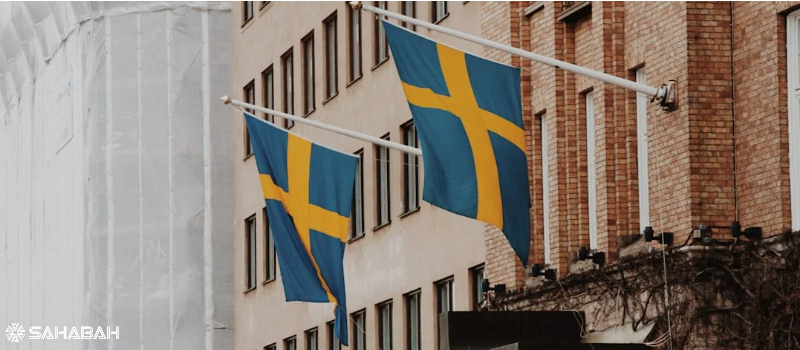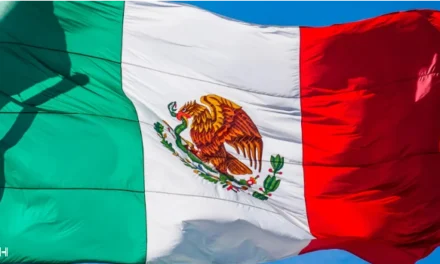The relationship between Sweden and Israel has been marked by a complex interplay of support, criticism, and shifting dynamics over the years. This comprehensive blog post delves into the nuances of Sweden’s stance towards Israel, examining the political, economic, and cultural ties that bind the two nations while also exploring areas of tension and disagreement.
Historical Overview: Sweden’s Recognition of Israel’s Statehood
Sweden was one of the first European countries to recognize Israel’s statehood in 1949, shortly after its establishment. This early recognition laid the foundation for diplomatic relations and the establishment of embassies in each other’s capitals. However, Sweden’s position on the Israeli-Palestinian conflict has often been a source of contention, with the country advocating for a two-state solution and criticizing Israeli settlements in the occupied territories.
Political Dynamics: Sweden’s Stance on the Israeli-Palestinian Conflict
Sweden has consistently supported the creation of an independent Palestinian state alongside Israel, based on the pre-1967 borders. The country has been critical of Israeli settlements in the West Bank and Gaza Strip, which it considers a violation of international law. Sweden’s voting patterns in the United Nations have often reflected this stance, with the country supporting resolutions critical of Israeli policies towards the Palestinians.
However, Sweden has also recognized Israel’s right to defend itself against attacks from Hamas and other militant groups. In 2014, during the war between Israel and Hamas in Gaza, Sweden’s Foreign Minister Margot Wallström stated that Israel had a legitimate right to defend itself, while also calling for a ceasefire and humanitarian access to Gaza.
Economic Ties: Trade and Business Relations
Despite political tensions, Sweden and Israel have maintained strong economic ties. Bilateral trade agreements and economic cooperation have facilitated the exchange of goods and services between the two countries. Swedish companies, such as Ericsson and Volvo, have a significant presence in Israel, while Israeli companies have invested in various sectors in Sweden, including technology and innovation.
Cultural and Academic Exchanges
Sweden and Israel have also fostered cultural and academic exchanges, promoting mutual understanding and dialogue. Collaborations in research and innovation have brought together scholars and scientists from both countries, while student exchange programs have facilitated cross-cultural learning experiences.
Sweden’s Support for Palestinian Causes
While maintaining diplomatic and economic ties with Israel, Sweden has also been a vocal supporter of Palestinian causes. The country has provided financial aid and development assistance to the Palestinian territories, and in 2014, Sweden became the first European Union member state to officially recognize the State of Palestine.
This move drew criticism from Israel, which called the recognition “unfortunate” and claimed it would undermine efforts towards a negotiated two-state solution. However, Sweden defended its decision, stating that it was a crucial step towards achieving lasting peace in the region.
Public Opinion and Domestic Debates
Within Sweden, public opinion on the Israeli-Palestinian conflict has been divided. While some segments of the population are supportive of Israel, others have been critical of its policies towards the Palestinians. The influence of pro-Palestinian and pro-Israeli lobbies has shaped domestic debates, with discussions often centering around issues such as anti-Semitism, criticism of Israel, and the right to freedom of expression.
The far-right Sweden Democrats party has been vocal in its support for Israel, while the left-leaning parties, such as the Left Party and the Green Party, have been more critical of Israeli policies. The ruling Social Democratic Party has sought to strike a balance, maintaining ties with Israel while also supporting Palestinian statehood and criticizing settlements.
Future Prospects: Navigating Complexities
As the Israeli-Palestinian conflict continues to be a contentious issue on the global stage, Sweden’s relationship with Israel is likely to remain complex and multifaceted. While diplomatic and economic cooperation may continue, Sweden’s criticism of Israeli policies towards the Palestinians is unlikely to subside, particularly if settlement expansion and violations of international law persist.
Sweden’s role in potential peace negotiations and its ability to balance support for Israel with criticism of its policies will be crucial in shaping the future of this relationship. Efforts to promote dialogue and understanding between Israelis and Palestinians, as well as addressing domestic debates and concerns, will be essential for navigating these complexities.
Key Takeaways
- Sweden’s relationship with Israel is multifaceted and complex, marked by both support and criticism.
- Diplomatic ties and economic cooperation coexist with criticism of Israeli policies towards the Palestinians.
- Sweden has been a vocal supporter of Palestinian statehood and has criticized Israeli settlements as violations of international law.
- Cultural and academic exchanges have fostered mutual understanding and dialogue between the two nations.
- Public opinion and domestic debates in Sweden reflect a range of perspectives on the Israeli-Palestinian conflict.
- Efforts to promote dialogue and understanding between Israelis and Palestinians will be crucial for navigating the complexities of this relationship in the future.
FAQ: Does Sweden Support Israel?
Sweden has a long history of supporting humanitarian assistance and aid to the region, including both Israelis and Palestinians.
What is Sweden’s stance on the conflict between Israel and Hamas?
Sweden’s position emphasizes the importance of finding a peaceful resolution to the conflict, supporting a two-state solution and condemning violence from both sides.
How does Sweden view the leadership of Benjamin Netanyahu in Israel?
The Swedish government has had varying relationships with Netanyahu’s leadership, based on foreign affairs and diplomatic interactions.
Has Sweden expressed any pro-Israel sentiments in recent years?
While Sweden has shown support for humanitarian assistance to Israel, its stance on specific political issues can vary based on the situation.
Is there any notable event involving Sweden and Israel on October 7?
There is no widely known event specifically linking Sweden and Israel on October 7 in recent years.
How does Sweden view the idea of a two-state solution for Israel and Palestine?
The Swedish government has historically been in favor of a two-state solution as a means to resolve the conflict in the region.
Has the topic of the Holocaust influenced Sweden’s foreign policy towards Israel?
Sweden’s recognition of the Holocaust has shaped its approach to humanitarian issues, including providing aid to regions affected by conflicts like Israel and Palestine.





